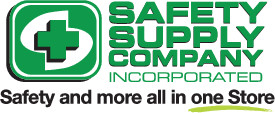Gloves and Their Many Uses

No single glove can provide appropriate protection for every situation, so it is important to assess the risk for each task and select a glove that provides specialized protection.
The following is a list of gloves and their appropriate application, according to the National Safety Council:
Cotton and fabric gloves: These can keep hands clean and protect against abrasions, but may not be strong enough to handle work with rough or sharp materials.
Coated fabric gloves: This type of glove can provide protection against some moderate concentrated chemicals. They can be used in laboratory work provided they are strong enough to protect against the specific chemical being handled.
Rubber, plastic or synthetic gloves: These types of glove can be used when cleaning or working with oils, solvents and other chemicals.
Leather gloves: These should be used when welding, as the leather can resist sparks and moderate heat. The risk of cuts and abrasions also can be minimized by wearing leather gloves.
Aluminized gloves: These gloves are recommended for welding, furnace and foundry work, as they provide reflective and insulating protection.
Kevlar gloves: These have a wide variety of industrial applications. They are cut- and abrasion-resistant and provide protection against both heat and cold.
Chemical/liquid-resistant gloves: Several types of gloves help protect against specific chemicals
Butyl rubber gloves: nitric acid, sulfuric acid, hydrochloric acid and peroxide
Natural latex/rubber gloves: water solutions or acids, alkalis, salts, and ketones
Neoprene gloves: hydraulic fluids, gasoline, alcohols and organic acids
Nitrile rubber gloves: chlorinated solvents
Check out our range of gloves here: http://bit.ly/2s1ecyM
Blog Articles
Check out more articles
PPE: The Unspoken Love Language
Wearing PPE: Protecting Your Present and Securing Your Future
View MoreTips to Improve Safety While Working With Heavy-Duty Mobile Equipment
Improving the safety of ground personnel working around mobile equipment, such as forklifts, excavators, etc., requires a combination of engineering controls, administrative measures, and behaviora
View MoreWhy You Should Service Your Safety Equipment
Safety equipment serves as the frontline defense against workplace hazards, ensuring the well-being of employees and minimizing risks.
View More



